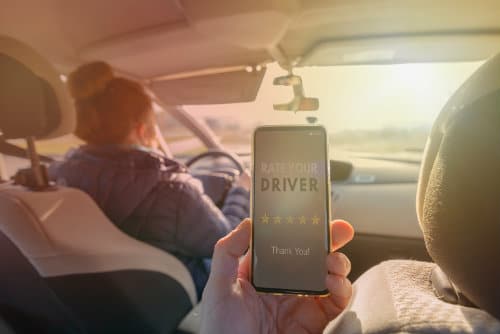Second, only to China, The United States of America is one of the primary “car capitals of the world.” In 2017, more than 272 million vehicles were registered in the country. It seems that this number will continue to rise, as last year, ownership rates for cars jumped to their highest level in a decade.
For a variety of reasons, the U.S. is a popular place for car ownership. However, the automotive market is making it more challenging than ever to purchase a new vehicle. In February of this year, the average new vehicle transaction price was $36,590, almost a $1,000 increase compared to the same time last year.
In addition to rising transaction prices, the average interest rate on a new vehicle is 6.19 percent, a 1.29 percent increase when compared to 2018. These increases have likely led to Americans owing almost $1.3 trillion in auto debt as of February 2019.
While there are benefits to car ownership, these rising prices and interest rates may make you want to take a look at another mode of transportation, and fortunately, ridesharing can be a viable option.
The United States is the second most popular country for ridesharing. Using it can help you avoid a lot of the pricey responsibilities that come with car ownership. So, what are all the ways ridesharing beats out car ownership? Read on below.
Bypass on the Cost of Car Ownership
The cost of car ownership can be a considerable strain. Monthly payments, fuel costs, car insurance, and repairs can significantly put a dent in your pocket each month. Ridesharing allows you to bypass these sometimes-crippling expenses. Instead of hundreds of dollars in monthly payments, you can only pay by the ride. On average, the cost per mile of an Uber and Lyft ride is two dollars. Depending on the location of the places you go every day, you may come out cheaper.
Only Pay for What You Need
What if you decide to work from home, or find yourself in a situation where you no longer need to use your car regularly? Unless you have paid the car off and are in a position to sell it, you will be paying for something you rarely use. On the other hand, ridesharing allows you to only pay for a car only when you need it. This scenario will enable you to put your money to better use elsewhere. Also, if you know when you will need a car, you can better plan and budget your money ahead of time.
No Longer Worry about the Costs of an Accident
A car accident of any kind is unsettling, regardless of the cost it incurs. However, the financial obligations that can come from causing or being involved in a car crash can also cause stress. When you own a vehicle, you are solely responsible for accidents you cause. Even a light fender bender can send your insurance costs sky-high. Ridesharing eliminates this problem. The person driving as well as the ridesharing company will handle all damages.
You Don’t Have to Put off Other Big Purchases
Are you saving for a home, or want to travel the world? Paying off a $35,000 vehicle can be a significant burden. You might have to put certain things on hold to manage this debt. Fortunately, ridesharing allows you to avoid this problem. Instead of incurring tens of thousands of dollars in debt, you can put that money toward a down payment for a home, a business venture, or anything else that would require this amount of money. Not owning a car opens up a lot more financial options.
You Likely Won’t Get Back What You Paid for a Car
Unlike homes, the value of a car depreciates over time. So, once you drive the car off the lot, it automatically decreases in value. Also, if it takes you an average of five years to pay off the car, the vehicle will have depreciated to less than half of its value. So, you will not get back what you put into the car. With ridesharing, you don’t have to worry about paying on an asset that is steadily losing value.
Final Thoughts
Car ownership can come with many benefits in the form of freedom and safety. However, for many, the cons may outweigh the advantages. Automobiles can drain your pockets with a variety of recurring costs. Ridesharing allows you to bypass these issues, and only pay for transportation when you need it. There are also additional economic and environmental benefits attached to this option. Overall, with strategy and budgeting, ridesharing could become the better transportation alternative.










